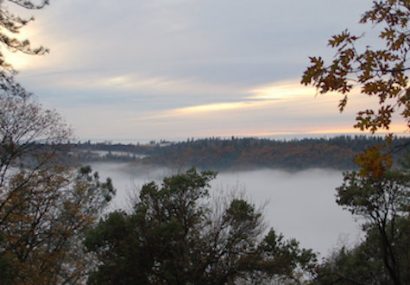The County of Butte, the California Water Service and the Paradise Irrigation District (PID) have begun studying whether it is economically feasible to pipe water from Paradise, California, where water supplies are considered abundant, to Chico, California, a community that faces strained water resources and water sustainability challenges. All of this comes in the wake of the “Camp Fire” which decimated the town of Paradise.
Background
As a result of the deadliest and most destructive wildfire in California history, the Camp Fire has left the Northern California town of Paradise with only 10 percent of its usual population. A retirement community home to 26,800, has, at recent count, dwindled to a mere 2,034 residents.
While the residential population of Paradise has seen a staggering decline, the community’s water resources and water storage system generally remain intact. Reports indicate that the Camp Fire did not substantially damage the Paradise Irrigation District’s (PID’s) water storage system, which includes Paradise Lake and Magalia Reservoir, or its water treatment plant.
As the Paradise community contemplates its immediate future, another community, just west, in Chico, is seeking long-term solutions to manage its groundwater basin, which has experienced reductions in groundwater levels due to increasing urban and agricultural customer demand.
Butte County Board of Supervisors Approve Groundwater Study
The Butte County Board of Supervisors recently approved a $143,800 study to the feasibility of building a water supply pipeline from Paradise to Chico. The study is anticipated to be completed in February 2020 and will address the pipeline’s project design, costs and long-term plans for recharging the Chico basin aquifer.
A Creative Solution
Assuming the project is feasible, its proponents consider it to be a creative solution to establish a symbiotic relationship between the two cities. With Paradise losing 90 percent of its population, PID also lost 90 percent of its customer and revenue base, which it needs to help Paradise rebuild. Chico, which is located approximately 15 miles from Paradise, and has been recognized by the California Department of Finance as the fastest growing city in California, could provide a needed revenue supply for PID.
Likewise, PID water supplies could benefit Chico in its implementation of California’s Sustainable Groundwater Management Act (SGMA), particularly as Chico remains 100 percent dependent on groundwater supplies. This project has the potential to solve Chico’s long-term groundwater sustainability issues and at the same time assist with PID’s financial and revenue-based issues. Considering that Paradise’s ability to rebuild is also in part dependent on PID’s survival, the pipeline project could facilitate Paradise’s efforts at rebuilding its community, creating a win-win-win scenario for all three entities.
Opponents of the project, including one Butte County supervisor who voted against conducting the feasibility study, have expressed concerns that the project might invite unwanted growth and unneeded sprawl into Butte County, between Chico and Paradise. According to that Supervisor, such sprawl would not be congruent with the county’s general plan in terms of growth.
Conclusion and Implications
California is increasingly exploring creative water projects and water management solutions at both the local and regional levels. As a result of the horrific and devastating Camp Fire, new challenges, questions and opportunities arise for future water management not only for the town of Paradise, but also for neighboring communities affected by the fire and other trends. Whether this project moves forward or not, water and community leaders in Paradise, Chico and Butte County may be applauded for their efforts in considering thoughtful solutions to sensitive water management issues.
(Chris Carrillo, Michael Duane Davis)




